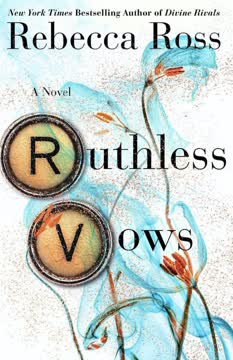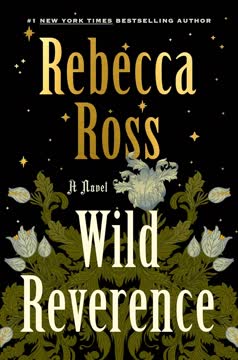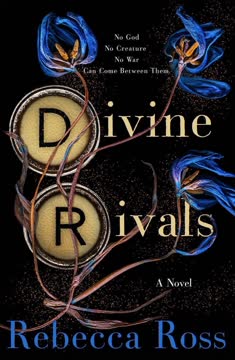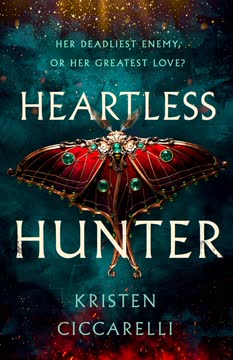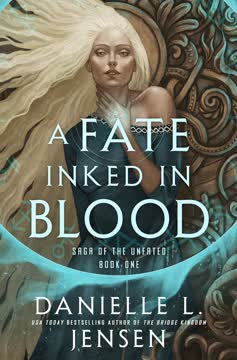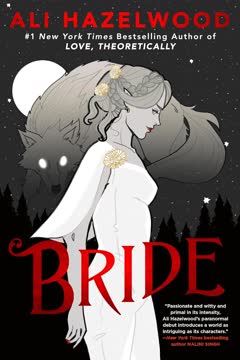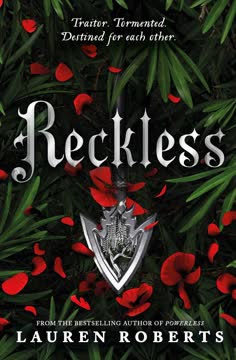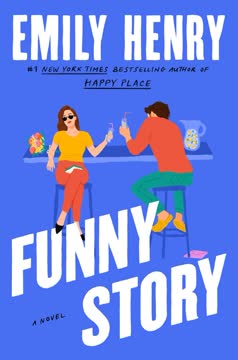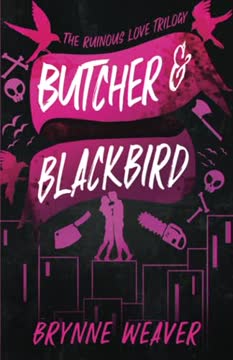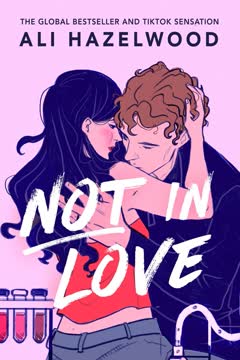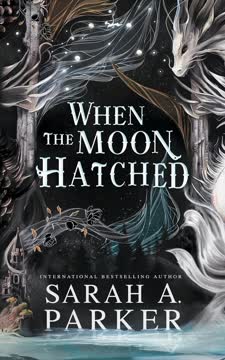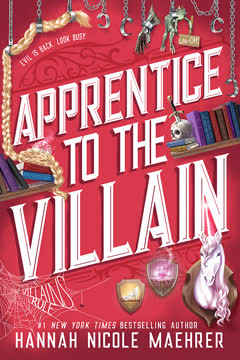Plot Summary
Prologue: Songs and Sacrifice
Centuries before the present, Enva, a goddess of music and wind, sacrifices her own happiness to keep her former lover, Dacre, a god of the underworld, asleep beneath the earth. Her song, woven with heartbreak and power, binds him for generations, but she knows the spell will one day fail. As mortals live and die above, Enva walks among them, haunted by her choices and the knowledge that all songs end. When the time comes, she senses Dacre's awakening and prepares for the inevitable reckoning, her own immortality weighed down by the cost of her magic and the memories of love turned to ruin.
Shadows Over Oath
Spring arrives in Oath, but the city is tense, marked by the scars of war and the threat of divine intervention. Iris Winnow, a young journalist, feels the chill of being watched as she navigates her daily life, haunted by the loss of her mother and the trauma of her brother Forest's return from the front. The city is divided by fear, graffiti warning "Gods belong in their graves," and the absence of Enva's guidance. Iris's work at the Inkridden Tribune is both a refuge and a battleground, as she and her friend Attie struggle to report the truth while political powers try to silence them. The specter of Dacre's return looms, and Iris's longing for her missing husband, Roman, is a wound that refuses to heal.
Letters Across the Divide
Iris and Roman's relationship is sustained by enchanted typewriters that allow them to send letters across impossible distances, even as war and magic threaten to sever their bond. Roman, lost and amnesiac in Dacre's realm, clings to the fragments of his identity through the act of writing. Iris, in Oath, pours her heart into letters she's unsure will ever reach him. Their words become lifelines, carrying hope, regret, and the ache of separation. As Iris faces her own family's unraveling and Roman is manipulated by Dacre, the letters are both a comfort and a reminder of all that's at stake.
The God's Awakening
Roman awakens in the underworld, his memories fractured by Dacre's magic. He is healed physically but left hollow, his past a fog. Dacre, charismatic and terrifying, recruits Roman as his war correspondent, tasking him with spreading propaganda to the mortals above. Roman's sense of self is tested as he is forced to choose between the truth and survival. Meanwhile, Iris and Attie are pressured to return to the front, risking everything to report on the war's true horrors. The city of Oath becomes a chessboard, with mortals and gods alike maneuvering for power, and the cost of loyalty grows ever steeper.
War's Front and Home's Heart
As the war intensifies, Iris and Attie travel west, reporting from the front lines and witnessing the devastation wrought by Dacre's forces. They encounter old friends and new dangers, their courage tested by bombings, betrayals, and the ever-present threat of divine wrath. Roman, meanwhile, struggles to reconcile his role as Dacre's mouthpiece with the flickers of memory and conscience that refuse to die. Both Iris and Roman are haunted by family—Forest's wounds, Roman's estranged parents—and by the question of what it means to fight for home, love, and truth in a world where gods walk and mortals bleed.
The Price of Memory
Dacre's healing magic comes with a price: those he saves are left with scars both physical and mental, their memories altered or erased to ensure loyalty. Roman's journey to recover his past is fraught with pain, as each recollection brings both joy and anguish. The magic that once connected him to Iris is threatened by Dacre's manipulations, and the risk of forgetting her—and himself—grows with every day. Iris, too, is forced to confront the limits of memory and the ways trauma shapes identity, as she navigates her brother's suffering and her own grief.
Secrets in the Underworld
The underworld is a labyrinth of secrets, with magical doors that connect the realms above and below. Keys forged by Dacre and his kin allow passage, but only for those he trusts—or those cunning enough to steal them. Roman and Iris both become entangled in the mysteries of the underworld, seeking ways to reunite and to undermine Dacre's plans. The ley lines beneath Oath are both a source of power and a potential refuge, and the knowledge of their locations becomes a weapon in the struggle for the city's survival.
The Magic of Words
Words are weapons in this war: Dacre's propaganda seeks to seduce and control, while Iris and Attie's reporting aims to reveal the truth. The battle for Oath is fought not just with bombs and magic, but with headlines, articles, and the stories people choose to believe. Roman is torn between his role as Dacre's scribe and his longing to write honestly, while Iris risks everything to publish warnings and hope. The enchanted typewriters become symbols of resistance, their magic a testament to the enduring power of love and language.
Allies, Traitors, and Thieves
Desperation breeds daring: Iris, Attie, and their allies break into the museum to recover a magical typewriter, risking arrest and worse. The lines between friend and foe blur as betrayals come from unexpected quarters—within families, among soldiers, and even in the ranks of the resistance. The Graveyard, a secretive group in Oath, rises to challenge both gods and chancellors, their methods ruthless and their motives ambiguous. Trust becomes a rare and precious commodity, and every alliance is tested by the war's relentless demands.
The Lullaby's Power
The key to defeating Dacre may lie in music: a lullaby, "Alzane's Lullaby," once used to bind gods to sleep. Attie's forbidden violin, Enva's harp, and the echoes of ancient songs become weapons in the mortal struggle against divine tyranny. Dreams and memories are shaped by music, and the power to enchant or destroy rests in the hands of those brave enough to play. As Iris and Attie prepare for a final confrontation, the boundaries between magic and mortality blur, and the fate of the realm hangs on a single, haunting melody.
Bombs Over Oath
Dacre issues a ruthless ultimatum: join him or be destroyed. As the deadline approaches, Oath is thrown into chaos, its people forced to choose between surrender and resistance. Iris and Attie race to warn and shelter as many as they can, using their knowledge of magical ley lines to save lives. The bombing of Oath is a cataclysm, shattering the city and its people, and leaving survivors to pick through the ruins. The cost of war is made brutally clear, and the survivors must reckon with grief, guilt, and the question of what comes next.
The Sword and the Song
Armed with a magical sword and Attie's music, Iris descends into the underworld to confront Dacre. The battle is both physical and magical, a test of courage, sacrifice, and the bonds of friendship. Enva's guidance, Attie's lullaby, and Iris's determination combine to overcome Dacre's power. The god is slain, his head severed and his magic undone. The victory is hard-won, marked by loss and the knowledge that even triumph cannot restore what has been lost.
The Fall of Dacre
With Dacre's death, the war ends, but the reckoning has only begun. The Graveyard rises to exact vengeance on Dacre's followers, blurring the line between justice and retribution. Roman, nearly executed as a traitor, is saved by Iris's intervention and the truth of his actions. Trials are held, collaborators punished, and the city begins the slow process of healing. The survivors must navigate a new world, haunted by the ghosts of the past and the uncertain promise of the future.
Aftermath and Reckoning
The aftermath of war is a landscape of ruins and sorrow. Iris mourns the loss of her brother and friends, while Roman grapples with the scars—physical and emotional—left by Dacre's magic. The city of Oath struggles to rebuild, its people changed by trauma and loss. The survivors must find new ways to live, to love, and to hope, even as they carry the weight of memory. The power of words, music, and community becomes a lifeline, and the promise of healing is both fragile and fiercely defended.
The Last Letters
As Iris and Roman begin to build a new life together, they are sustained by the letters that once carried them through darkness. The act of writing—stories, articles, and love notes—remains a source of connection and meaning. Farewells are said to the dead, forgiveness is sought and sometimes found, and the survivors honor the past even as they look to the future. The enchanted typewriters, once tools of war and longing, become instruments of healing and hope.
Healing, Hope, and Home
A year after the war, Iris and Roman have built a home together, their love deepened by all they have endured. The scars of war remain, but so does the magic of words, music, and memory. Friends gather, gardens bloom, and the city slowly comes back to life. The story ends not with a final victory, but with the quiet, persistent work of healing—of writing, loving, and dreaming a better world into being.
Epilogue: Coda of Dreams
Enva, the last goddess, lingers in Oath, her presence a quiet blessing and a reminder of all that has been lost and gained. She walks among mortals, her magic now gentle, her power tempered by sorrow and wisdom. The world is changed, but the music endures—a coda for dreams, a promise that even in the aftermath of war, beauty and hope can still be found.
Characters
Iris Winnow
Iris is the heart of the story: a young woman shaped by grief, poverty, and the trauma of war. Her mother's death and her brother's suffering have left her fiercely protective and determined to find meaning in a world torn apart. As a journalist, she is both witness and participant, risking everything to report the truth and save lives. Her love for Roman is both a source of strength and vulnerability, and her journey is one of self-discovery, sacrifice, and the refusal to surrender hope. Iris's psychological arc is defined by her struggle to balance duty and desire, to forgive herself and others, and to believe in the possibility of healing after devastation.
Roman Carver Kitt
Roman is a man divided: a privileged son estranged from his family, a war correspondent manipulated by a god, and a lover desperate to remember and be remembered. Dacre's magic leaves him amnesiac and malleable, but the act of writing—letters, articles, confessions—becomes his path back to identity and love. Roman's relationship with Iris is the anchor that keeps him from being lost to darkness, and his journey is one of reclaiming agency, confronting guilt, and choosing truth over comfort. His psychological complexity lies in his struggle with trauma, the burden of memory, and the longing for redemption.
Dacre Underling
Dacre is both villain and tragic figure: a god of the underworld whose love for Enva curdled into obsession and cruelty. His power to heal is matched by his ability to wound, both physically and psychologically. Dacre's need for control drives him to manipulate mortals and divines alike, using memory, pain, and propaganda as weapons. His relationship with Roman is both paternal and predatory, and his ultimate downfall is rooted in his inability to understand the resilience and complexity of mortal love. Dacre's psychological portrait is one of narcissism, loneliness, and the terror of irrelevance.
Enva
Enva is a figure of both grace and sorrow: a goddess whose magic is both a gift and a curse. Her love for Dacre and her role in binding him shape the fate of the world, and her presence in Oath is both a comfort and a source of tension. Enva's guidance to Iris and Attie is marked by both wisdom and the limitations of immortality—she cannot break her vows, and her power is diminished by the burdens she carries. Psychologically, Enva embodies the cost of sacrifice, the ache of lost love, and the hope that mortals might achieve what gods cannot.
Attie Attwood
Attie is Iris's steadfast companion: a talented violinist who risks everything to keep her music alive in a world that fears its power. Her courage and wit provide both comic relief and emotional ballast, and her role in the final confrontation with Dacre is pivotal. Attie's psychological arc is one of defiance—against authority, against despair, and against the silencing of art. Her friendship with Iris is a model of chosen family, and her romance with Tobias adds warmth and hope to the story's darker moments.
Forest Winnow
Forest is both a victim and a survivor: a young man shattered by war, manipulated by Dacre, and haunted by guilt. His relationship with Iris is marked by both tenderness and conflict, as he struggles to protect her while grappling with his own wounds. Forest's psychological journey is one of shame, longing for redemption, and the search for meaning in suffering. His death is a devastating loss, but his love and pride for Iris endure as a source of strength.
Tobias Bexley
Tobias is the story's unsung hero: a motorcar racer turned post runner whose courage and loyalty save lives again and again. His romance with Attie is sweet and understated, and his presence provides both practical support and emotional grounding. Tobias's psychological arc is one of quiet heroism, the willingness to risk everything for friends, and the belief that ordinary people can make a difference in extraordinary times.
Sarah Prindle
Sarah is a former colleague of Iris's, whose kindness and intelligence provide comfort and stability. Her relationship with Forest is a rare bright spot in the darkness, and her death is a reminder of the war's indiscriminate cruelty. Sarah's psychological portrait is one of empathy, resilience, and the quiet strength found in everyday acts of care.
Lieutenant Shane
Shane is a complex figure: a soldier who serves Dacre while secretly working for the Graveyard. His shifting allegiances and willingness to betray or save others make him both dangerous and indispensable. Shane's psychological arc is defined by self-preservation, guilt, and the recognition that in war, debts are always paid in blood or betrayal.
Mr. Ronald Kitt
Roman's father is a man undone by ambition and fear, willing to serve any master to ensure his own survival. His relationship with Roman is fraught with disappointment and unspoken love, and his ultimate fate—imprisonment for war crimes—is a warning about the cost of complicity. Psychologically, Mr. Kitt embodies the dangers of moral cowardice, the hunger for control, and the tragedy of a life spent serving power rather than people.
Plot Devices
Enchanted Typewriters and Letters
The enchanted typewriters are the story's central magical device, allowing Iris and Roman to communicate across impossible distances and even realms. Their letters are more than messages—they are acts of resistance, love, and self-discovery. The typewriters symbolize the enduring power of words to connect, heal, and change the world, even in the face of war and magic. The narrative structure is deeply epistolary, with letters serving as both plot drivers and emotional anchors, and the act of writing becomes a form of agency and survival.
Memory Manipulation and Amnesia
Dacre's magic to heal wounds at the cost of memory is a recurring plot device, raising questions about the nature of self, loyalty, and trauma. The use of amnesia and memory recovery structures Roman's arc, creating suspense and emotional stakes as he struggles to reclaim his past and his love for Iris. This device also explores the ethics of power—what it means to control not just bodies, but minds and histories.
Magical Doors, Keys, and Ley Lines
The underworld's network of magical doors and ley lines is both a literal and metaphorical map of the story's conflicts. Keys forged by gods allow passage between realms, and knowledge of their locations becomes a weapon in the struggle for survival. The doors symbolize both opportunity and danger, and their use structures the story's movement between worlds, as well as the characters' journeys toward truth and freedom.
Music as Magic and Weapon
Music—especially "Alzane's Lullaby"—is a plot device that bridges the mortal and divine, memory and magic. The power of song to enchant, heal, or destroy is central to the final confrontation with Dacre, and the ban on stringed instruments in Oath is both a political and magical act. The use of music as both a literal weapon and a metaphor for hope, memory, and resistance is woven throughout the narrative, culminating in the story's climax.
Epistolary Structure and Dual POV
The story's structure alternates between Iris and Roman's perspectives, often through their letters, creating dramatic irony, emotional resonance, and a sense of intimacy. The dual POV allows readers to experience both the external events of war and the internal landscapes of love, grief, and hope. The use of letters as both plot device and narrative voice blurs the line between public and private, action and reflection, and deepens the story's psychological complexity.
Foreshadowing and Symbolism
Recurring symbols—birds, music, dreams, and the changing seasons—foreshadow key events and underscore the story's themes of loss, transformation, and the possibility of healing. Dreams serve as both warnings and sources of guidance, while birds and flight symbolize freedom, hope, and the endurance of beauty in the face of destruction. The use of foreshadowing creates a sense of inevitability and fate, while also allowing for moments of surprise and grace.
Analysis
Ruthless Vows is a sweeping, emotionally charged fantasy that explores the intersection of love, war, memory, and the power of words. At its core, the novel is a meditation on the costs of survival—what we are willing to sacrifice for those we love, and how trauma shapes both individuals and societies. Through its dual protagonists, Iris and Roman, the story examines the ways in which memory, identity, and agency are manipulated by those in power, and how the act of writing—whether as journalism, confession, or love letter—becomes a form of resistance and self-assertion. The enchanted typewriters are both literal and symbolic bridges, connecting not just lovers, but the past and future, the personal and the political. The novel's use of music as both magic and metaphor underscores the importance of art in times of crisis, while the recurring motif of birds and flight offers hope for renewal even after devastation. Ultimately, Ruthless Vows is a story about the resilience of the human spirit, the necessity of truth, and the enduring magic of connection. It reminds us that even in a world shattered by war and haunted by gods, the quiet acts of love, courage, and storytelling can change the course of history—and heal what has been broken.
Last updated:
Review Summary
Ruthless Vows received mixed reviews, with an average rating of 3.99 out of 5. Some readers found it a satisfying conclusion to the duology, praising the lyrical prose and emotional depth. However, others felt disappointed, citing a slow pace, lack of romance, and focus on war plot over character development. Many appreciated the expansion of world-building and fantasy elements but missed the intimate moments between protagonists Roman and Iris. Despite criticisms, fans of the series still found value in the book's themes of love, sacrifice, and the power of words.
Letters of Enchantment Series
Similar Books
Download PDF
Download EPUB
.epub digital book format is ideal for reading ebooks on phones, tablets, and e-readers.
